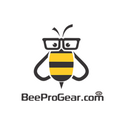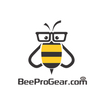
Introduction
Beekeeping is a rewarding and environmentally beneficial hobby or profession that provides us with honey, beeswax, and a crucial role in pollinating plants. However, like any venture, it's not without its challenges. Novice beekeepers often make common mistakes that can harm their hives and their beekeeping experience. In this blog post, we will explore these mistakes and how to avoid them, allowing you to nurture a thriving and healthy bee colony.
Neglecting Proper Hive Placement
One of the first mistakes many beginner beekeepers make is placing their hive in an unsuitable location. Bees need a stable, dry, and well-ventilated environment. Avoid areas prone to strong winds, excessive moisture, or direct sunlight. Proper placement is essential for the health and productivity of your hive. It's also crucial to follow local regulations and property boundaries when choosing your hive location.
Failing to Maintain Regular Hive Inspections
Regular hive inspections are essential to identify and address potential issues early. Neglecting inspections can lead to undetected diseases, pests, or a decrease in hive productivity. Set a schedule for inspections and stick to it, especially during the active beekeeping season.
Overlooking Queen Health
The queen bee is the heart of the hive, responsible for laying eggs and maintaining hive population. Many beekeepers make the mistake of neglecting her health. Regularly check for a healthy queen, and be prepared to requeen the hive if necessary. A failing queen can lead to a decline in colony performance.
Not Managing Pests and Diseases
Pests and diseases are common threats to bee colonies. Two of the most notorious enemies of bees are the Varroa mite and the Nosema parasite. Failing to implement a pest and disease management plan can devastate your hive. Educate yourself on common bee diseases and pests and learn how to recognize and control them safely.
Harvesting Honey Too Soon
While the goal of beekeeping is to harvest honey, taking honey from the hive too soon can be detrimental. Bees need honey stores to survive the winter. Harvesting too much honey can leave them without enough food, causing them to starve. Ensure the hive has enough honey reserves before harvesting, especially in colder climates.
Overfeeding Bees
On the flip side, overfeeding your bees can be just as harmful. Bees are capable of foraging for their own food, and excess sugar syrup or artificial food can lead to issues like obesity and decreased honey production. Only feed your bees when necessary, such as during a nectar dearth.
Neglecting Seasonal Hive Management
Different seasons require different beekeeping approaches. Failing to adjust your beekeeping practices according to the season can lead to problems. Be aware of seasonal changes in foraging, brood rearing, and hive space requirements. In colder climates, make sure your bees have enough stores for winter.
Conclusion
Beekeeping can be an incredibly rewarding experience when done correctly, but it's essential to learn from the common mistakes that others have made. By avoiding these pitfalls and staying informed about best practices, you can nurture a thriving and productive bee colony. Regular hive inspections, proper hive placement, and vigilant pest and disease management are just a few of the keys to successful beekeeping. Remember, bees are crucial to our ecosystem, so responsible beekeeping benefits not only you but also the environment. Happy beekeeping!


